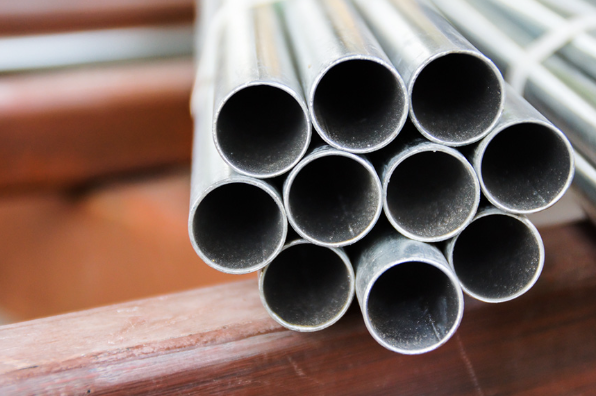What Are the Properties of Steel? [+ Steel Selection Tips for CNC]
![What Are the Properties of Steel? [+ Free Material Selection Tips]](https://ufc-dtc-cms.oss-accelerate.aliyuncs.com/blog/20250212/211030_yi3pnurf0.png)
Discover the key properties of steel for CNC machining, including strength, hardness, and corrosion resistance. Get expert insights, material comparisons, and free selection tips to choose the best steel for your project!
Introduction
Steel is one of the most widely used materials in CNC machining, known for its strength, versatility, and cost-effectiveness. With various types available—stainless steel, carbon steel, and alloy steel—choosing the right one for your project can significantly impact performance, durability, and cost.
In this guide, we will explore the key properties of steel, compare different types, and provide insights to help you make an informed decision for your CNC machining needs.
What Are the Properties of Steel?
Steel is a fundamental material in manufacturing, renowned for its exceptional strength, durability, and versatility. Its unique combination of physical and chemical properties makes it suitable for a wide range of applications, from construction to aerospace.
Steel's characteristics make it a preferred material for various applications, from industrial machinery to aerospace components. Below are its key properties:
Physical Properties of Steel
Understanding the physical properties of steel is crucial for selecting the appropriate type for specific applications. Key physical properties include:
Density: Approximately 7.85 g/cm³, contributing to its substantial weight and strength.
Melting Point: Ranges between 1,370°C to 1,540°C, depending on the alloy composition.
Thermal Conductivity: Typically around 50 W/m·K, affecting heat dissipation during processes like welding and machining.
Electrical Conductivity: Steel is a relatively poor conductor of electricity compared to other metals like copper.
Magnetic Permeability: Carbon steels are generally magnetic, while some stainless steels are non-magnetic due to their crystal structure.
Chemical Propertites of Steel
The chemical composition of steel defines its behavior in various environments and its suitability for different applications. Key chemical properties include:
Carbon Content: Varies from 0.02% to 2.14%, influencing hardness, ductility, and tensile strength.
Alloying Elements: Elements such as chromium, nickel, manganese, and molybdenum are added to enhance properties like corrosion resistance, toughness, and hardenability.
Corrosion Resistance: While carbon steel is prone to rust, stainless steel contains at least 11% chromium, which forms a passive oxide layer to prevent corrosion.
Oxidation Resistance: Alloying elements like silicon and aluminum can improve steel's resistance to oxidation at high temperatures.

Types of Steel Used in CNC Machining
Below is a summarized table of all steel types used in CNC machining, including their key characteristics and best applications.
Steel Type | Key Characteristics | Best Applications |
|---|---|---|
High corrosion resistance, good strength, machinability | Medical, food processing, marine | |
Carbon Steel | High strength, cost-effective, low corrosion resistance | Structural components, industrial machinery |
Enhanced mechanical properties, moderate corrosion resistance | Aerospace, automotive | |
High hardness, excellent wear resistance | Cutting tools, dies, molds | |
Maraging Steel | High strength, good toughness, excellent machinability | Aerospace, high-performance shafts |
For a more detailed comparison, refer to the following table with images.
Below is a summarized comparison of different steel types used in CNC machining, along with representative images for better understanding.
Different types of steel cater to varying application needs. Below are the most commonly used steel types in CNC machining:
1. Stainless Steel
Properties: High corrosion resistance, good strength, and excellent machinability.
Best for: Medical devices, food processing equipment, marine applications.
Tip: Use 316 stainless steel for superior corrosion resistance in marine environments.

2. Carbon Steel
Properties: High strength, cost-effective, but lower corrosion resistance.
Best for: Structural components, industrial machinery, and automotive parts.
Tip: Carbon steel requires protective coatings to prevent rust in humid environments.

Source: polycase.com
3. Alloy Steel
Properties: Enhanced mechanical properties due to added elements like chromium and molybdenum.
Best for: Aerospace, automotive, and high-stress applications.
Tip: Use 4140 alloy steel for a balance of toughness and wear resistance.

Source: bharatsteels.in
4. Tool Steel
Properties: High hardness, excellent wear resistance, and the ability to retain a sharp cutting edge.
Best for: Manufacturing cutting tools, dies, and molds.
Examples:
A2 Tool Steel: Known for its good toughness and dimensional stability after heat treatment.
D2 Tool Steel: Offers high wear and abrasion resistance, suitable for long-term tooling applications.

5. Maraging Steel
Properties: Combines high strength and toughness with excellent machinability.
Best for: Aerospace components, tooling, and high-performance shafts.
Example:
Maraging Steel (MS1): Ideal for tooling applications such as injection molding and die casting.

Source: smithsadvanced.com
How to Choose the Right Steel for CNC Machining?
When selecting steel for your CNC project, consider the following factors:
1. Application Requirements
For corrosion resistance: Choose stainless steel.
For cost-effectiveness: Carbon steel is a better choice.
For high-strength applications: Alloy steel provides superior mechanical properties.
2. Machining Efficiency
Different steel types have varying machinability. High-hardness steel requires specialized tools and techniques to achieve precision cuts.
3. Budget Considerations
Balancing cost and performance is key. Stainless steel is more expensive but offers long-term benefits, while carbon steel is affordable but may need protective coatings.
Steel Type | Strength | Hardness | Corrosion Resistance | Cost | Best for |
|---|---|---|---|---|---|
Stainless Steel | High | Medium | Excellent | High | Medical, food, marine |
Carbon Steel | Medium | High | Low | Low | Structural, machinery |
Alloy Steel | Very High | High | Medium | Medium | Aerospace, automotive |
Tool Steel | Very High | Very High | Low | Medium | Cutting tools, dies, molds |
Maraging Steel | High | Medium | Medium | High | Aerospace, high-performance shafts |
Quick Tip: Use our free online CNC cost calculator to estimate machining costs for different steel types.
Conclusion
Choosing the right steel for CNC machining depends on factors such as strength, hardness, corrosion resistance, and cost. By understanding the different properties and types of steel, you can make informed decisions that optimize performance and efficiency.
Whether you need high-strength alloy steel, cost-effective carbon steel, or corrosion-resistant stainless steel, selecting the right material ensures the success of your machining projects.
Unionfab CNC Machining Services for Steel
At Unionfab, we provide high-precision CNC machining services for a variety of steel types. Our facilities are equipped with over 400 advanced CNC machines, ensuring top-tier quality and fast turnaround times.
We offer machining for stainless steel, carbon steel, and alloy steel, with ISO-certified processes that guarantee reliability and accuracy.
✅ Our Services Include:
Multi-axis CNC Milling & Turning – High-precision steel parts with complex geometries.
Custom Steel Machining – Tailored solutions based on your specific project requirements.
Instant Quoting System – Upload your CAD files for an instant price estimate.
Rapid Prototyping & Mass Production – Scalable manufacturing for projects of any size.
Learn more about our CNC machining services here: Unionfab CNC Machining Services

